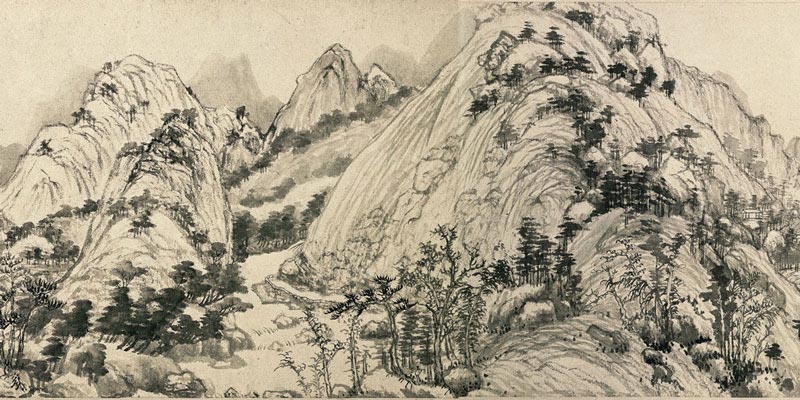Born during the Eastern Jin Dynasty (317-420 AD), Shi Seng Fu (釋僧富) did not let poverty be a barrier to education. He would read books even at night, using the light from burning firewood. By the age of 20, he could comprehend Chinese classic texts and historical annals.
Shi Seng Fu decided to become a monk after listening to a monk, Shi Dao An (釋道安), discuss the Buddhist Scriptures.
In 385 A.D., after Shi Dao An’s death, he returned to Ting Wei Temple (廷尉寺) in Wei (魏) prefecture in Henan province. He devoted himself to cultivating one’s self according to Buddhist doctrine, without minding secular affairs.
One day, bandits looted the village and captured a child whose heart and liver they planned to carve out and sacrifice to a god.
Shi Seng Fu ran into the bandits and offered his clothing in exchange for the release of the child. But the bandits refused his offer.
Shi Seng Fu then said, “What if I sacrifice my five organs to your worship?”
Thinking that no person would be so foolhardy as to give up his life to save a child he didn’t know, the bandits replied in unison, “Adult is better.”
The following thought flashed through Shi Seng Fu’s mind: “Everyone has to die. If I can use my death to save the life of the child, it would be living on, though dead.”
He then took a knife from one of the bandits and cut open his belly. Blood spilled out right away.
The bandits were so frightened that they fled immediately and sent the child back to his home.
Fortunately, a passerby rescued Shi Seng Fu and brought him back to the temple where he was treated. — First published in Tulay Fortnightly, Chinese-Filipino Digest 27, no. 3 (July 8-21, 2014): 5.
Categories
Making the greatest sacrifice
